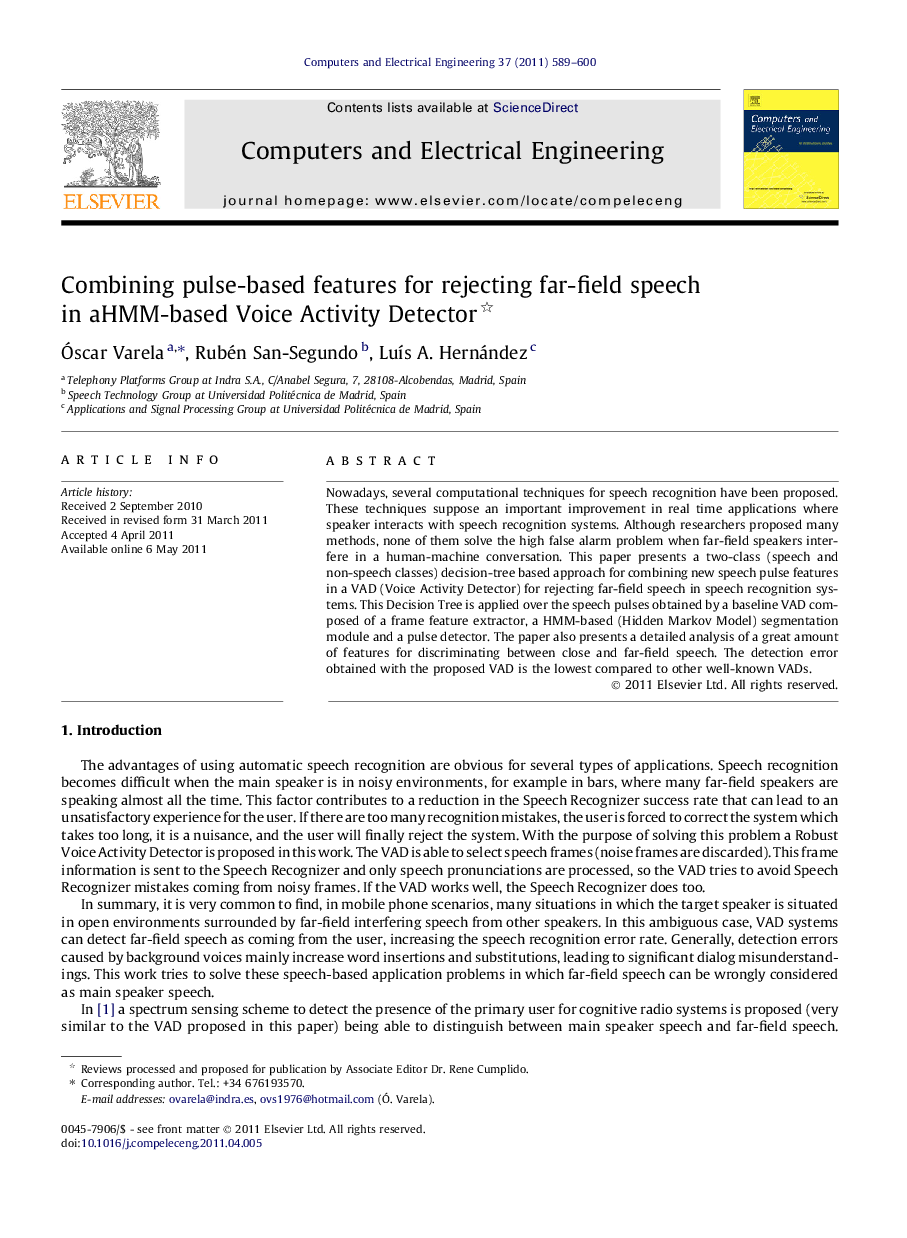| کد مقاله | کد نشریه | سال انتشار | مقاله انگلیسی | نسخه تمام متن |
|---|---|---|---|---|
| 455211 | 695349 | 2011 | 12 صفحه PDF | دانلود رایگان |

Nowadays, several computational techniques for speech recognition have been proposed. These techniques suppose an important improvement in real time applications where speaker interacts with speech recognition systems. Although researchers proposed many methods, none of them solve the high false alarm problem when far-field speakers interfere in a human-machine conversation. This paper presents a two-class (speech and non-speech classes) decision-tree based approach for combining new speech pulse features in a VAD (Voice Activity Detector) for rejecting far-field speech in speech recognition systems. This Decision Tree is applied over the speech pulses obtained by a baseline VAD composed of a frame feature extractor, a HMM-based (Hidden Markov Model) segmentation module and a pulse detector. The paper also presents a detailed analysis of a great amount of features for discriminating between close and far-field speech. The detection error obtained with the proposed VAD is the lowest compared to other well-known VADs.
A new robust HMM-based Voice Activity Detector for rejecting far-field speech is proposed. Speech pulses are analysed based on five new long-term measurements considering harmonic structure and spectral envelope features. This five measurements are combined using a Decision Tree to perform the final classification: near-field speech vs far-field speech or noise. Significant improvement compared to other standard Voice Activity Detectors is shown.Figure optionsDownload as PowerPoint slide
Journal: Computers & Electrical Engineering - Volume 37, Issue 4, July 2011, Pages 589–600